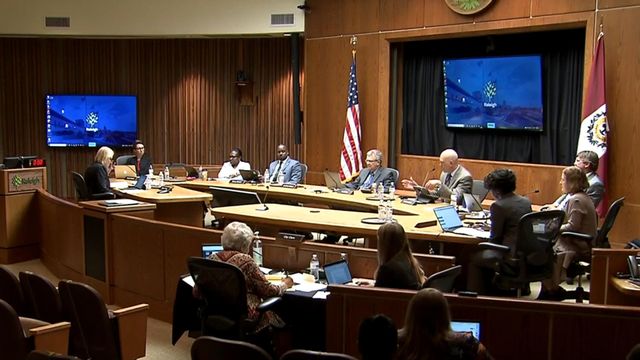Larger Raleigh council, raises for members among recommendations in city report
The faces and issues change with the times and politics, but how Raleigh City Council are elected has remained the same since 1973. That could soon change, however, if recommendations in a city report are adopted.
Posted — UpdatedThe report says it gives more time for voters to judge the effectiveness of their representatives, as it often takes more than a year for proposed ordinances to make it through the city's drafting and review process.
2. Elections should be staggered, with district representatives elected at once and the mayor and the two at-large council members elected in another election.
The report recommends a 66 percent raise for the mayor, from $27,550 in annual compensation to $45,911, and an 88 percent raise for council members, from $19,725 to $37,248. The compensation includes allowances for expenses, vehicle use and technology.
Smaller districts will lower the campaign costs for candidates, and an odd number of council members will prevent any tie votes.
6. Create a voter engagement program.
Raleigh has outgrown its current City Council, said Diana Powell, a member of the study group.
"The city is growing – has grown – very fast," Powell said. "We have to catch up with times. We cannot continue to have a City Council govern under the old way."
Mayor Mary-Ann Baldwin said the council districts need to be overhauled and not simply redrawn to account for the latest census numbers.
The overhaul is why city officials asked the General Assembly to push Raleigh's elections from this fall to November 2022 instead of simply to March, as was done for dozens of other cities and towns across North Carolina following delays in obtaining 2020 census data.
Councilman David Cox said he would like to see a 10-member council, with none of the members elected at-large.
"If we make the districts smaller, then that becomes much more manageable, and it allows greater inclusivity in governing our city," Cox said. "It allows people to be more in touch – the council members to be more in touch – with their constituents, and it allows people from those smaller communities, those smaller districts, an easier time to actually run for council."
As for the raises, Baldwin said she hopes that would "encourage more people to participate in the process and make it a little more equitable."
"When you look at participation and getting more people involved in the process, I think that’s something we’ve been talking about for a long time," she added.
After the council reviews the report, officials plan to collect public input on the ideas.
"These are significant changes, and I think we should have a referendum and these changes should be put on the ballot," Cox said.
Related Topics
• Credits
Copyright 2024 by Capitol Broadcasting Company. All rights reserved. This material may not be published, broadcast, rewritten or redistributed.





